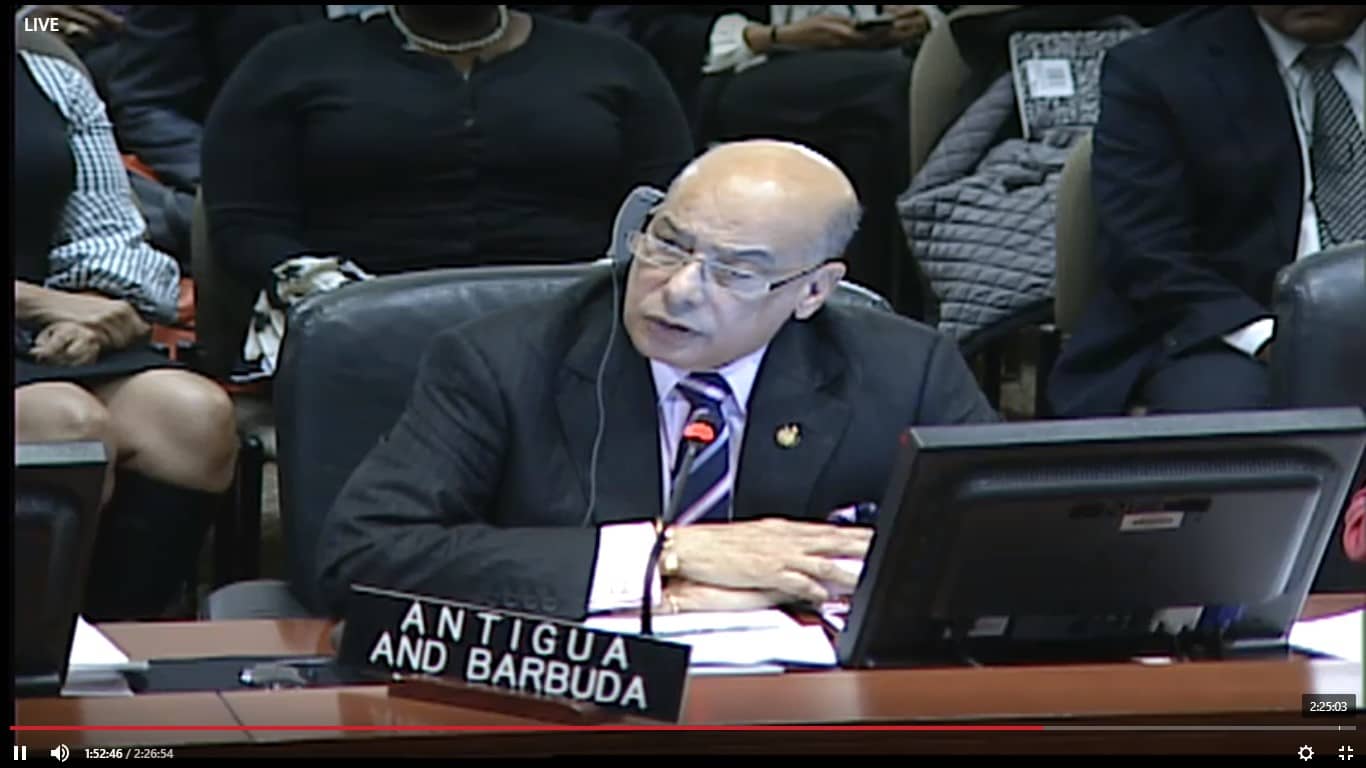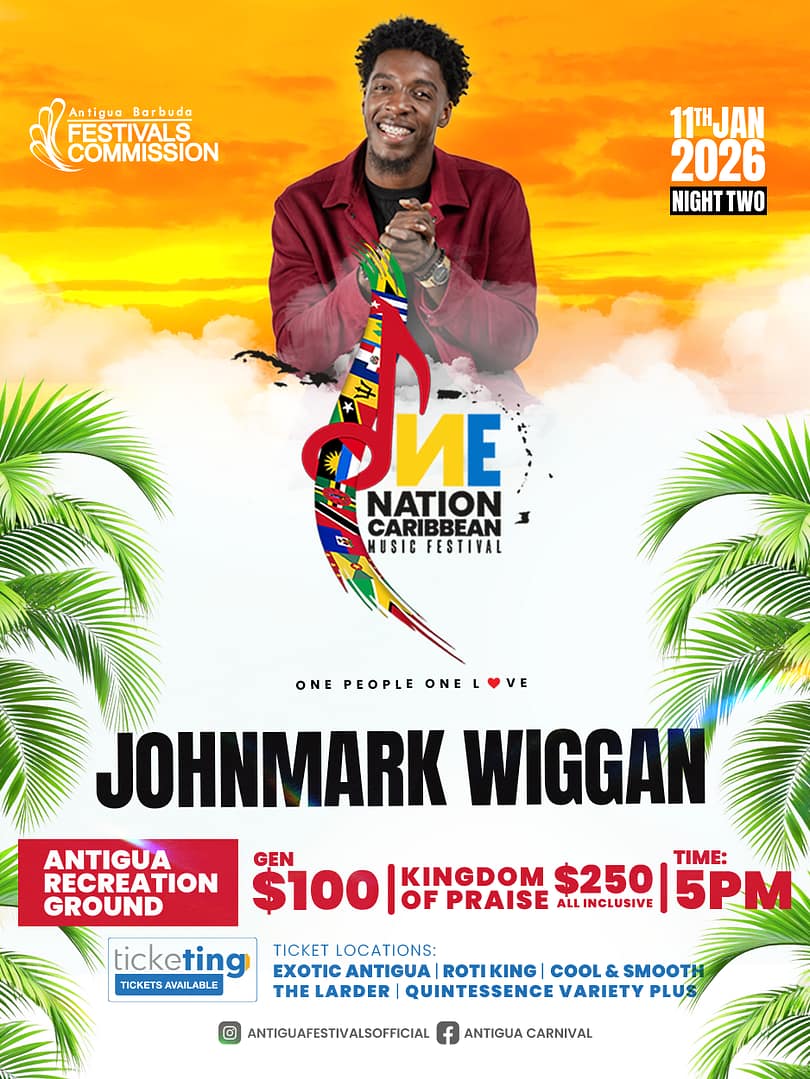
By Ronald Saunders
(The writer is Ambassador of Antigua and Barbuda to the United States and the Organization of American States. He is also a Senior Fellow at the Institute of Commonwealth Studies at the University of London and at Massey College in the University of Toronto. The views expressed are entirely his own)
As she delivered the unanimous decision of the 11 members of the Supreme Court of the United Kingdom and Northern Ireland (UK), on the unlawfulness of Prime Minister, Boris Johnson, advising the Queen to prorogue Parliament, I admit to being mesmerized by the startling brooch being worn by the Court’s President, Baroness Brenda Hale.
It was rather large, very sparkly and looked like a scorpion. I learned later that it was a replica of a spider. Either way, unaccustomed to such extravagant accessories for a Judge, usually garbed in sober robes and a wig, I was taken aback at what appeared to be a more casual presentation of a judgment of historic moment.
The apparent casualness of attire notwithstanding, Baroness Hale read out a decision that was as stinging as the bite of a scorpion that I wrongly assumed was represented by the glittering brooch she wore.
“The Prime Minister’s advice to Her Majesty”, she said, “was unlawful, void and of no effect”. That advice, given to the Queen on August 28, was to prorogue parliament for an unprecedented five weeks from September 11. Mr. Johnson’s objective was to silent belligerent members of parliament, including within his own Conservative Party, from opposing his withdrawal of the UK from the European Union (EU) on October 31 – the drop-dead date for separation with no negotiated deal on the terms of the separation.
The appeals to the Supreme Court were made by a combination of persons, including parliamentarians and private citizens – prominently, Guyanese-born, UK businesswoman, Gina Miller – who felt their interests were being suffocated by Mr. Johnson’s gagging of parliament at a time when negotiations between the UK and the EU had not been concluded and the UK was facing deep economic uncertainty.
What was on trial was the effort of the leader of a political party in office to impose his desired political agenda by shutting-down the parliamentary system that was created to check the government’s abuse of power.
In their joint decision, the Supreme Court judges pointed out that one of the important questions before them was whether “this prorogation did have the effect of frustrating or preventing the ability of Parliament to carry out its constitutional functions, without reasonable justification”. In their words, the Judges declared that “this was not a normal prorogation in the run-up to a Queen’s Speech. It prevented Parliament from carrying out its constitutional role for five out of the possible eight weeks between the end of the summer recess and exit day on 31st October”. On that question, the Court was clear: “The decision to advise Her Majesty to prorogue Parliament was unlawful”.
That is a remarkable and historic indictment of a British Prime Minister by the highest court in the land. Normally, in the British tradition, Mr. Johnson would have made a public apology, announced his resignation and retired quietly to write a book in the hope that its explanations and descriptions of what led to this constitutional mess, would earn him additional pension money.
Not so with Mr. Johnson. Forced to return to Parliament, which resumed in the wake of the Court decision, Mr. Johnson was extraordinarily pugnacious, even accusing the Court of being “wrong to pronounce on what is essentially a political question”.
Clearly, the Court did not agree with Mr. Johnson or they would not have decided that the matter was “justiciable”, adding that “the courts have exercised a supervisory jurisdiction over the lawfulness of acts of the Government for centuries”.
In the context of the Caribbean, going to the Court for arbitration of a question regarding a government’s overreach of its powers has become common place. But, in the Commonwealth Caribbean, where the same system of representative democracy exists as in the UK, the Constitutions are written. In the UK, the Constitution is not; it consists of laws passed by parliament and customs associated with them. In this sense, judges in Commonwealth Caribbean countries interpret constitutional requirements based on a body of written law; the UK Supreme Court was less constrained in this case and, together, the 11 judges gave great prominence in their thinking to parliamentary accountability, citing a senior Law Lord, Lord Bingham. “The conduct of government by a Prime Minister and Cabinet collectively responsible and accountable to Parliament lies at the heart of Westminster democracy”.
The same should apply in Commonwealth Caribbean countries.
None of this has taken the matter of the UK’s exit from the EU any further than it was before Mr. Johnson prorogued parliament. There is a law on the statute books, rapidly adopted by both Houses of Parliament on September 6, five days before Mr. Johnson’s prorogation came into force, preventing the UK from leaving the EU without a withdrawal agreement on October 31.
A further law, passed by Parliament when Johnson’s Conservative Party lost its majority, requires the government to ask for a delay in leaving the EU beyond October 31, if it fails to secure a deal by October 19. Mr. Johnson, even in the face of the Supreme Court’s public slapping-down of his Prime Ministerial overreach, has adamantly stated that he will not seek an extension.
Mr. Johnson failed in his plan to yank the UK out of the EU by ignoring parliamentary democracy and constitutional barriers. Clearly, he will now continue to ignore parliament in his overarching ambition to tug the UK out of the EU. Not least because, at a looming general election, his Conservative Party will not get the votes of the electorate who wish to remain in the EU, and it is in danger of losing voters to the extreme right-wing Brexit Party which desperately wants the UK out of Europe.
Winning the next election is everything.
Advertise with the mоѕt vіѕіtеd nеwѕ ѕіtе іn Antigua!
We offer fully customizable and flexible digital marketing packages.
Contact us at [email protected]


















Is this guy ever in Antigua? He seems to speak for Antigua, but is he ever here? Is he an Antiguan? I have nothing against the guy, but why don’t we ever see him on the streets among the people? Just wondering.
Yes he is in Antigua from time to time (Just like our High Commissioner to the UK)
on it , the views expressed will not be perceived as the view of the Antiguan government?
Or is it the case that the diplomatic ties that the ambassador is supposed to nurture and develop, are so bad that nothing he says can make them any worse?
This statement:
(The writer is Ambassador of Antigua and Barbuda to the United States and the Organization of American States. He is also a Senior Fellow at the Institute of Commonwealth Studies at the University of London and at Massey College in the University of Toronto. The views expressed are entirely his own)
Is ridiculous!
How can a serving Ambassador make public statements about foreign leaders and think that because he puts a disclaimer it , the views expressed will not be perceived as the view of the Antiguan government?
Or is it the case that the diplomatic ties that the ambassador is supposed to nurture and develop, are so bad that nothing he says can make them any worse?
At least we have an idea who the author is. No one knows who the Audley person is that was writing articles on ANR.
Notes From A Native Son Of The Rock! “I feel my soul as vast as the world, truly a soul as deep as the deepest of rivers; my chest has the power to expand to infinity. I was made to give and they prescribe for me the humility of the cripple.” ― Frantz Fanon, Black Skin, White Masks!
Ronald Sanders, The writer, is an Antiguan & Barbudan academic, diplomat and former journalist who is the Ambassador Extraordinary and Plenipotentiary to the United States and to the Organization of American States (2015–present)! He is also non-resident High Commissioner to Canada! He is a senior research fellow at the Institute of Commonwealth Studies, University of London, at Massey College in the University of Toronto and is a speaker at conventions and conferences on global financial services issues and on Caribbean states in the political-economy of the Americas and the Commonwealth! “For the beloved should not allow me to turn my infantile fantasies into reality: On the contrary, he should help me to go beyond them.” ― Frantz Fanon!
The U.S. is a country of 50 states covering a vast swath of North America, with Alaska in the northwest and Hawaii extending the nation’s presence into the Pacific Ocean! With a population of some 329 million on a land mass of some 3.8 million square miles, the third most populous country, the fourth largest by land mass and the world’s largest economy of some $21.3 Trillion US! The majority of visitors to Antigua and Barbuda are Americans! Antigua and Barbuda attracted a total of 1,081,365 visitors in 2018 of which some 40% came from the US Market! It has been suggested that more persons of Antigua and Barbuda Ancestry live in the USA than on the Rock! “Sometimes people hold a core belief that is very strong. When they are presented with evidence that works against that belief, the new evidence cannot be accepted. It would create a feeling that is extremely uncomfortable, called cognitive dissonance. And because it is so important to protect the core belief, they will rationalize, ignore and even deny anything that doesn’t fit in with the core belief.” ― Frantz Fanon!
The OAS headquartered in Washington, DC, USA, comprises 35 Independent Countries stretching from the Arctic at the North Pole to Antarctica! The Total Population is nearing I billion souls speaking four national languages – Spanish, English, Portuguese, French – and over 440 Indigenous and Creole languages on a land mass of 15,550,526 sq miles! The Caribbean Development Bank is funded by Borrowing Shareholders – Jamaica, TnT, 17.31% each, Bahamas 5.1%, Guyana 3.72%, Barbados 3.24%, Suriname 1.49%, Haiti 0.78% A&B, Belize, Dominica, SKN, SLU, SVN, 0.77% each, GRN 0.76%! Non-Borrowing Shareholder Funding by other OAS members are Canada 9.31%, Colombia (over 5 million people of African descent), Mexico (Approximately 5.0 Million People of African Descent) and Venezuela (Approximately 3.5 Million People of Sub-Sahara African Descent even though most Venezuelans claim some African blood, and Afro-Venezuelan culture is acknowledged as an vital component of national identity) 2.79% each and Brazil (which has the largest population of People of African Descent in the Diaspora, over 51% of the population or 99 Million souls) 1.12%! “An endless task, the cataloguing of reality. We accumulate facts, we discuss them, but with every line that is written, with every statement that is made, one has the feeling of incompleteness.” ― Frantz Fanon!
Canada has a population of some 37.5 Million people (smaller than California) on a land mass of some 3.855 million square miles and is the second largest country in the world with Gross Domestic Product of approximately $2 Trillion USD the 15th largest in the World! It supplies some 10% of our Tourism, Yachting and Hospitality Visitors! It has been suggested that of those who identify some 9,300 folks of Antigua and Barbuda ancestry reside in Canada! “Everything can be explained to the people, on the single condition that you really want them to understand.” ― Frantz Fanon, The Wretched of the Earth!
Comments are closed.